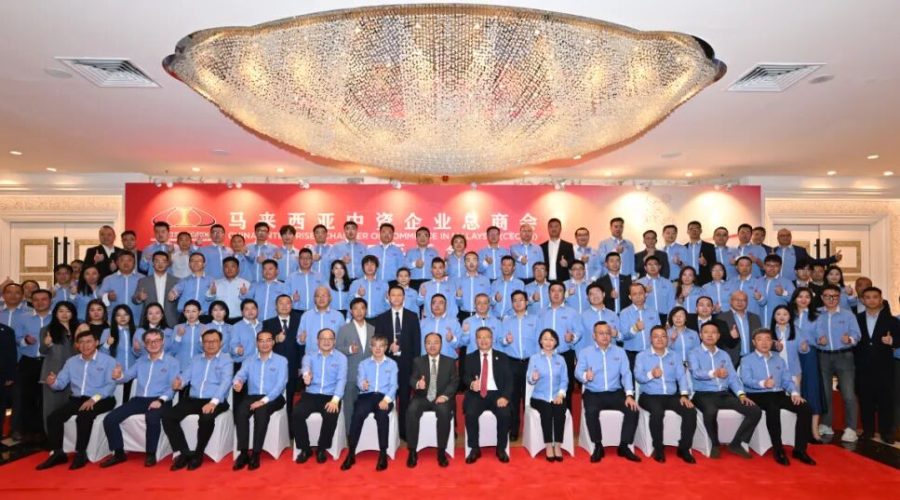Corporate Income Tax
Filing of tax return
Under the self-assessment system, all companies must file the tax returns within seven (7) months from the end of the accounting period. The tax return must be submitted by way of an electronic medium or electric transmission. Tax return filed by a taxpayer will be deemed as a notice of assessment served upon the tax payer. Tax payable under an assessment upon submission of a tax return is due and payable by the 7 months from the end of the accounting period.
Estimate of tax
Under the self assessment system, every company is required to determine and submit in a prescribed form (Form CP204) an estimate of its tax payable for a year of assessment, 30 days before the beginning of the basis period. However, when a company first commences operations (i.e. during the first basis period), the estimate of tax payable must be submitted to the Inland Revenue Board (“IRB”) within three months from the date of commencement of its business and thereafter no later than 30 days before the beginning of the basis period. The estimate of tax payable for that year cannot be less than 85% of the revised estimate of tax payable for the immediate preceding year of assessment or if no revised estimate is furnished, cannot be less than 85% of the estimate of tax payable for the immediate preceding year of assessment. A company is still required to submit the prescribed Form CP204 within the stipulated deadline even if it expects its estimate of tax payable to be Nil.
Every company is allowed to revise its estimate of tax payable by submitting a Form CP204A in the 6th, 9th and/or 11th month of its basis period for a year of assessment. Where the revised estimate exceeds the amount of instalments paid to date, the difference shall be payable in the remaining months of the instalment scheme. Conversely, when instalments paid to date exceed the revised estimate, the company may discontinue its original instalment scheme.
Corporate tax rate
| Company with paid up capital not more than RM2.5 million and gross business income of not more than RM50 million * | |||||||
| – On first RM150,000 | 15% | ||||||
| – RM150,001 to RM600,000 | 17% | ||||||
| – In excess of RM600,000 | 24% | ||||||
| Company other than the above category | 24% | ||||||
* The companies must not be part of a group of companies where any of their related companies have a paid-up capital of more than RM2.5 million and no more than 20% of its paid-up capital is owned (directly or indirectly) by companies incorporated outside Malaysia or non-Malaysian citizens.
Penalties
Under the self-assessment system, failure to file tax returns, submission of incorrect returns, late payment of taxes, underestimation of tax payable, and other related non-compliances may result in penalties imposed by the IRB.
Withholding tax
Withholding tax rates
| Type of payment | Non-residents company |
| Dividends | 0% |
| Interest | 15% |
| Royalties | 10% |
| Service Fees | 10% |
Note*Malaysia generally does not impose withholding tax on payments between residents except for payments made in monetary form to authorized agents, dealers, or distributors who are resident individuals (a 2% withholding tax on the gross amount of payments by a company applies where the total amount of the payments received by the agents, dealers, or distributors from the company, in monetary form or non-monetary form, exceeds MYR 100,000 in the immediately preceding YA).
Dividends: Malaysia does not impose withholding tax on dividends.
Interest: A withholding tax of 15% generally applies to interest paid to a non-resident, unless the rate is reduced under an applicable tax treaty.
Royalties: A withholding tax of 10% generally applies to royalties paid to a non-resident, unless the rate is reduced under an applicable tax treaty.
Service Fees: A withholding tax of 10% generally applies to the rental of movable property and to service fees paid to a non-resident for services rendered onshore, unless the rate is reduced under an applicable tax treaty.
Tax treaty
To be eligible for the preferential rates of withholding tax on interest, royalty and service fees under Double Taxation Agreements (DTAs), a written confirmation in the form of a letter or certificate from the revenue authority of the relevant country confirming the resident status of the payee shall be consistently retained for future compliance reviews.
Where Malaysia has not entered into a DTA or there is a limited DTA with a particular country, the domestic tax laws of Malaysia shall prevail.
Under the DTA provision, if the same income is taxed in both countries (Malaysia and a treaty country), the taxpayer (non-resident) may claim tax relief known as bilateral credit in the country where he is resident.
Tax incentives
Malaysia offers a wide range of tax incentives for the promotion of investments in selected industry sectors, including manufacturing, healthcare, IT services, biotechnology, Islamic finance and research and development.
The three (3) main tax incentives are:
1. Pioneer status : 70% or 100% tax exemption of up to 10 years
2. Investment tax allowance : 60% or 100% allowance on qualifying capital expenditure of up to 10 years
3. Reinvestment allowance : 60% allowance on qualifying capital expenditure made in connection with qualifying projects of up to 15 years
Real Property Gains Tax (RPGT)
RPGT is charged on gains arising from the disposal of real property, which is defined as any land situated in Malaysia and any interest, option, or other right in or over such land. RPGT is also charged on the disposal of shares in a real property company (“RPC”). Effective from 1 January 2024, the acquisition and subsequent disposal of shares in an RPC by a company, limited liability partnership, trust body or co-operative society will not be subject to RPGT. However, a Labuan entity carrying on a business activity under Labuan Business Activity Tax Act 1990 remains subject to RPGT.
| Rate of RPGT | ||
| Disposal by a company | resident company | non-resident company |
| Disposal within 2 years after date of acquisition | 30% | 30% |
| Disposal in the 3rd year after date of acquisition | 30% | 30% |
| Disposal in the 4th year after date of acquisition | 20% | 30% |
| Disposal in the 5th year after date of acquisition | 15% | 30% |
| Disposal in the 6th year after date of acquisition or thereafter | 10% | 10% |
Self-Assessment System for RPGT has been implemneted with effect from 1 January 2025. The disposer and acquirer are required to submit the RPGT Return Forms within 60 days from the date of disposal.
No assessment notice will be issued as the RPGT Return Form submitted to the Director General of Inland Revenue will be treated as the assessment notice.
Any tax payable in relation to RPGT return made shall be due and payable within 90 days from the date of disposal of chargeable asset.
Capital gain tax (CGT)
CGT may apply on the disposal of capital assets by companies (and certain other legal entities), at a rate depending on when the capital assets were acquired by the company and whether the capital assets are located in Malaysia or abroad. With respect to capital assets located in Malaysia, only gains or profits from the disposal of unlisted shares of companies incorporated in Malaysia and shares of controlled companies incorporated outside Malaysia that hold real property located in Malaysia or shares of another controlled company are subject to CGT.
| In the case where | Acquisition date | Tax rate | ||
|
Disposal of shares incorporated in Malaysia not listed on stock exchange or Section 15C shares
|
Acquired before 1 January 2024 | (i) 10% on chargeable income or (ii) 2% on gross disposal price from the disposal |
||
| Acquired on or after 1 January 2024 | 10% on chargeable income from the disposal | |||
| Disposal of movable or immovable property situated outside Malaysia where income on such disposal is received in or remitted into Malaysia | Prevailing income tax rate of the company, LLP, trust body or cooperative society on chargeable income from the disposal | |||
Adjusted loss from the disposal of capital asset can be utilised to reduce the adjusted income for subsequent disposal of capital assets in the same basis periods for a Y/ A in which the disposal was made.
Any unutilised adjusted loss can be carried forward to reduce the adjusted income from the disposal of capital assets for a period of 10 consecutive Y/As. Any amount or balance of the amount which is not deductible at the end of that period shall be disregarded.
Exemptions for CGT are granted under following circumstances:
(a) disposal of shares from 1 January 2024 to 29 February 2024;
(b) disposal of foreign capital assets provided that the chargeable person fulfill the prescribed conditions:
(i) employs an adequate number of employees in Malaysia with necessary qualifications to carry out the specified economic activities in Malaysia; and
(ii) incurs an adequate amount of operating expenditure for carrying out the specified economic activites in Malaysia.
(c) disposal of unlisted shares of a company incorporated in Malaysia in relation to restructuring for an Initial Public Offering (IPO)
(d) disposal of unlisted shares of a company incorporated in Malaysia under a scheme of restructuring of companies in the same group
(e) exemption for a unit trust
Stamp duty
Stamp duty is imposed at rates between 1% and 4% of the value of property transfers, and at 0.3% on share transaction documents.
The government has introduce self assessment system effective from 1 January 2026 under 3 phases of implementation as below:
| Phase | Effective date | Types of instruments | ||||||
| Phase 1 | From 1 January 2026 | Instruments or agreements related to rental or lease, general stamping and securities | ||||||
| Phase 2 | From 1 January 2027 | Instruments of transfer of property ownership | ||||||
| Phase 3 | From 1 January 2028 | Instruments or agreements other than stated in Phase 1 and Phase 2 | ||||||
E-Invoicing
All taxpayers undertaking commercial activities in Malaysia are required to issue e-Invoice, in accordance with the phased mandatory implementation timeline. The issuance of e-Invoice is not limited to only transactions within Malaysia and also applicable for cross-border transactions.
| Targeted taxpayers | Implementation date | |
| Taxpayers with an annual turnover or revenue of more than RM100 million | 1 August 2024 | |
| Taxpayers with an annual turnover or revenue of more than RM25 million and up to RM100 million | 1 January 2025 | |
| Taxpayers with an annual turnover or revenue of more than RM500,000 and up to RM25 million | 1 July 2025 | |
| Taxpayers with an annual turnover or revenue of up to RM500,000 | 1 January 2026 | |
Sales Tax and Service Tax
Sales Tax and Service Tax is a single stage tax, hence any Sales Tax and/ or Service Tax incurred is a cost to business i.e. there is no credit mechanism.
Sales Tax
Sales Tax (at 5%, or 10% depending on the HS tariff code) is charged and levied on all taxable goods:
(i) Manufactured in Malaysia by a registered manufacturer and sold, used or disposed of by him; or
(ii) Imported into Malaysia by any person.
Effective 1 January 2024, Sales Tax is also imposed on Low Value Goods (“LVG”) that are sold online and imported into Malaysia.
Mandatory registration
Any manufacturer of taxable goods is liable to register for Sales Tax at the following time, whichever is the earlier:
• at the end of any month, where the total sale value of all his taxable goods in that month and the 11 months immediately preceding that month has exceeded the registration threshold of RM500,000; or
• at the end of any month, where there are reasonable grounds for believing that the total sale value of all his taxable goods in that month and the 11 months immediately succeeding that month will exceed the registration threshold of RM500,000.
Any manufacturer who is liable to be registered for Sales Tax shall apply to the Director General of Customs for registration as a registered manufacturer in the prescribed application form not later than the last day of the month following the month in which he is liable to be registered.
Voluntary registration
Any manufacturer of taxable goods who is not liable to be registered for Sales Tax (e.g. did not meet the registration threshold of RM500,000) may apply for registration as a registered manufacturer, subject to approval by the Director General of Customs.
Service Tax
Service Tax (at 6% or 8% depending on the type of taxable service) is charged and levied on:
(a) any taxable service (prescribed in the First Schedule to the Service Tax Regulations 2018 and its Amendment Regulations) provided in Malaysia by a registered person carrying on his business;
(b) any imported taxable service (where the service recipient in Malaysia is required to self-account for Service Tax); and/or
(c) digital services provided by a foreign registered person to consumers in Malaysia.
Mandatory registration
Any person who provides taxable service (excluding imported taxable service) and the total value of the taxable service for a period of 12 months is more than the prescribed registration threshold, is required to register for Service Tax. Please see First Schedule to the Service Tax Regulations 2018 and its Amendment Regulations for the prescribed registration threshold of the respective taxable services.
The liability to register for Service Tax is at the following time, whichever is the earlier:
• at the end of any month, where the total value of all taxable services in that month and the 11 months immediately preceding that month has exceeded the prescribed registration threshold; or
• at the end of any month, where there are reasonable grounds for believing that the total value of all taxable services in that month and the 11 months immediately succeeding that month will exceed the prescribed registration threshold.
The Minister of Finance may prescribe that any person who provides taxable service shall be liable to be registered on the date of the commencement of the business.
Any person who is liable to be registered for Service Tax shall apply to the Director General of Customs for registration as a registered person in the prescribed applicable form not later than the last day of the month following the month in which he is liable to be registered.
Voluntary registration
Any person who provides any taxable service and is not liable to be registered for Service Tax (e.g. did not meet the registration threshold) may apply for registration as a registered person, subject to approval by the Director General of Customs.
Imported taxable services registration
Any person who is not registered for Service Tax but acquires imported taxable services is required to register online via a separate registration with Customs to file a Service Tax Declaration.
Transfer pricing
Malaysia Transfer Pricing Guidelines (MTPGL) 2024 has been published that serves as guidance for taxpayers to prepare the CTPD effective from the year of assessment 2023. This MTPGL includes all changes made to Section 140A before 2024, as well as TPR 2023. A new Transfer Pricing Tax Audit Framework 2024 has been released to replace the Transfer Pricing Audit Framework 2019. This new framework is to cater to the imposition of surcharges on TP adjustments and penalty subsection 113B that can be imposed for failure to furnish a CTPD within 14 days from the date the notice is served.
Source of the article:KPMG PLT
Last updated date:02 October, 2025






